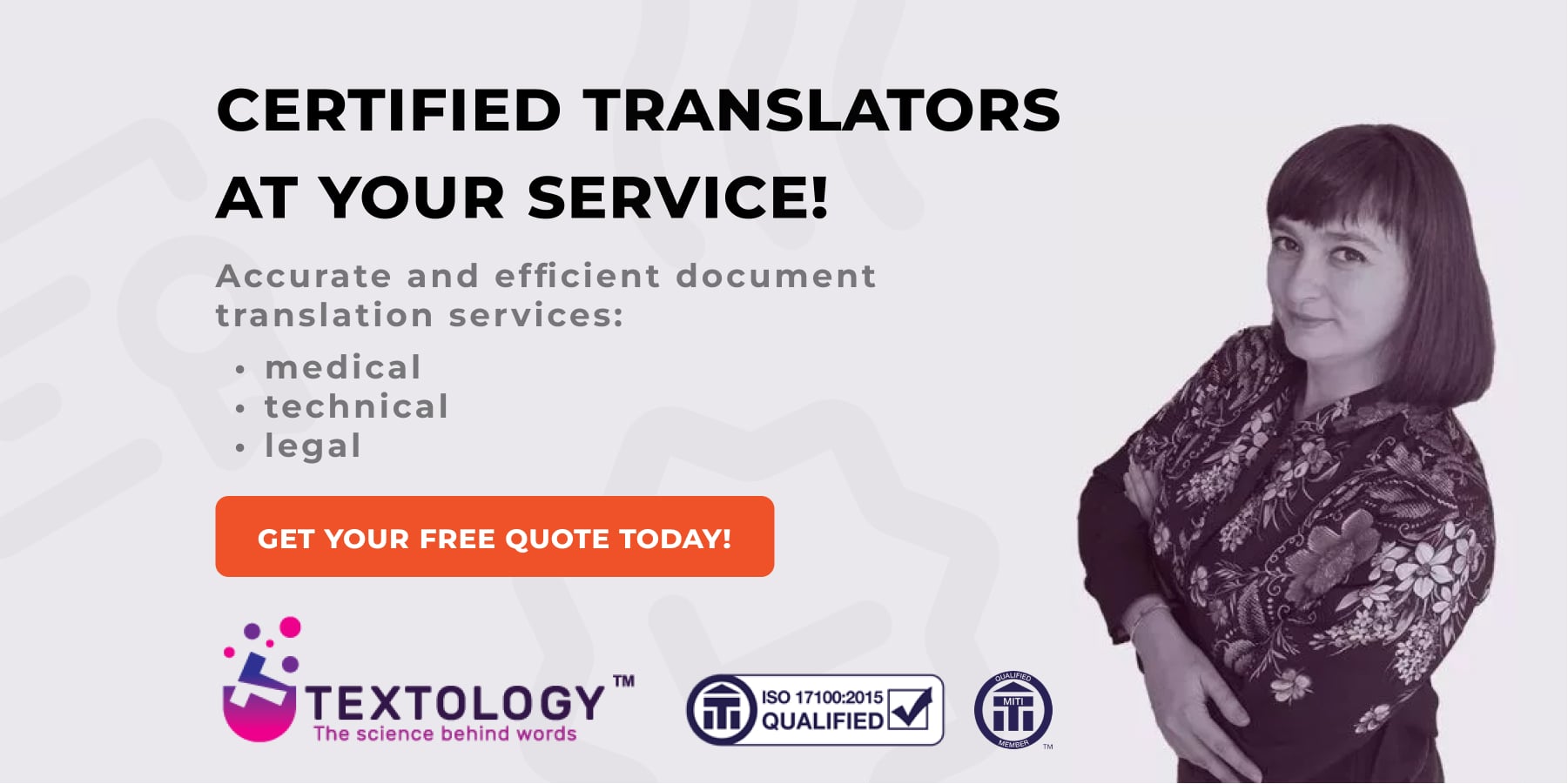
A sworn translation (or certified translation) is the term that will probably never stop generating confusion and, sometimes, even concern among people. The reason for this lies in the fact that countries differ in how sworn translation is perceived and what regulations specify it. For example, in some countries the term is even not in active use, in others — “sworn translator” is lawfully recognized as an occupation, but still, sets of requirements for candidates struggling to get the qualifications may vary hugely. Irrespective of your current circumstances, you may find yourself in need of sworn or certified translation services. Why and in what situations may they be required? That is exactly what we are going to look into in this article.
What is a sworn translation?
The aforesaid discrepancies make it difficult to provide one generally accepted and widely applicable definition of sworn translation. It can be defined as the process conducted by a professional who has been authorized by the state and whose translations are thus regarded as equivalent to the original texts. Such a professional must show great expertise in a certain field and be equipped with a set of skills thanks to which delivered translations are of impeccable quality in terms of their technical accuracy and linguistic correctness. In many countries, e.g., in Poland, these professionals are referred to as sworn (or certified) translators, and they have to fulfil very specific requirements in order to obtain a license and be legally allowed to offer sworn translation services. Every translation they complete must be accompanied by their signature and a seal (or a stamp) that proves the legal value of the translated documents.
However, the term has no equivalent in countries such as the UK, the USA, or Australia, where it is enough for a translator to just ensure that they are accountable for the validity of the translated text. Such declaration — simply swearing before a court — serves as sufficient confirmation.
The importance of sworn translations
You may be wondering why, in certain circumstances, sworn translators are called into action. Hiring a registered professional — whose seal and signature confirm that the foreign document is legitimate — tends to be seen as a precaution taken by companies, organizations, or firms against potential inaccuracies that could lead to serious repercussions. It also significantly reduces the risk of errors that are, to put it gently, highly undesirable in a translated document, especially when it comes to official documents used in legal translations.
Migration, globalization, tourism, accelerated expansion of international markets — these are just a handful of examples of characteristics of today’s world. People move a lot, either because they are looking for a better life or a more friendly environment to live in or to get the most out of their holiday endeavours. Businesses are no longer confined to the borders of their home countries, and they are bravely reaching out to new target markets. It should not be particularly surprising then that the intensification of such phenomena has led to certain consequences, one of which is an increased need of sworn translation services. Interesting fact: in the European Union alone, there are 24 official languages, with English, Spanish, German, and French being examples of the most spoken languages in Europe.

Why do you need a sworn translation service?
Whether you decide to move to another country, or engage in international business activities, there is a wide variety of formal issues you will have to attend to. One of such inevitable formalities involves submitting multiple documents of legal significance to a given government body, or organisation. More often than not, you will have to provide sworn translations of those documents, which, according to the laws of many countries, require to be authorized in order to ensure their genuineness.
Let’s have a look at some instances in which sworn or certified translations are necessary:
- Personal documentation needed for immigration purposes, such as submitting residence permit or visa applications (e.g., passports, identity cards, marriage/divorce certificates, birth certificates, medical records, etc.)
- Documents needed for employment (e.g., qualifications, current employment records, references, etc.)
- Documents for educational institutions (e.g., documents confirming previous qualifications and the level of language ability, ID documentation, etc.)
- Corporate documentation (e.g., business profiles, business correspondence, financial documents, etc.)
- Administrative and legal documents (e.g., court proceedings, appeals, medical documents, licenses, etc.)
Where are sworn or certified translations required?
As we have already mentioned before, countries differ in their requirements concerning the methods of verifying the authenticity of translated documents. Therefore, it is always worth checking if the state-approved formal status of translations is necessary in the country of your choice. Thanks to this, you can be sure what kind of translation services you need when you turn to a translation agency. In which countries, then, you are certain to be asked to supply important documents translated by a certified translator? Some examples include France, Spain, Italy, Argentina, Brazil, Germany, Indonesia, the Netherlands, or above-mentioned Poland. Bear in mind, though, that each of those countries have their own set of conditions that a candidate is obliged to fulfil before they get accredited and get on the register.
Why do you need experienced translators?
The necessity of conducting official translations requires hiring certified professionals who specialize in providing legal translation services in given language pairs. No wonder — such texts are usually packed with complex legal terminology that not only has to be translated, but also properly interpreted, which calls for a considerable amount of legal knowledge on the translator’s part. Furthermore, if a person is supposed to deliver a fully accurate translation for official purposes, they must demonstrate impressive linguistic skills, as well as a great deal of linguistic awareness and intuition needed to evaluate what kind of language is considered appropriate in a given context and taking into account cultural aspects of a given country.
Providing the best sworn translation services
Since completing the highest quality official translation is visibly a very demanding task, sworn translators need to be remarkably competent, knowledgeable, and experienced. Reliable translation companies are well aware of the fact that their clients expect certified translations to be exemplary, both linguistically and as far as the quality of information included in the text is concerned. This is why they decide to cooperate with renowned translators who are perfectly able to offer services that live up to those expectations.
In TEXTOLOGY we know that well. Our translation agency provides a vast variety of services, including certified translation services. If you are looking for fully professional help, don’t hesitate and contact us to get a free quote!

